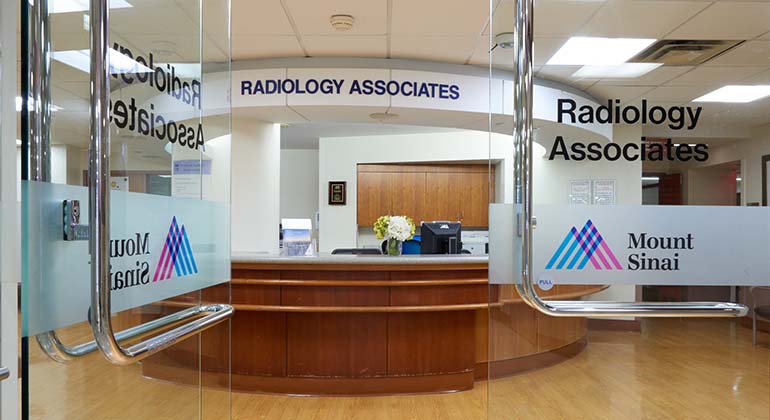About Us

Radiology at Mount Sinai offers a range of advanced imaging services. These services help keep you healthy. Imaging is an important tool in disease diagnosis, treatment, and prevention.
Our world-renowned radiologists specialize in every area of diagnosis, prevention, and treatment. Our imaging tools include:
- Computerized tomography (CT)
- Diagnostic and musculoskeletal radiography
- Digital mammography and breast tomosynthesis
- General diagnostic X-ray
- Head and neck imaging
- Interventional radiology
- Magnetic resonance imaging (MRI)
- Neuroradiology
- Nuclear medicine
- Positron emissions testing (PET)
- Ultrasound imaging
Diagnosis
By using imaging tools such as ultrasound and MRIs, we gather important information about your body using approaches such as biopsies. The information helps your doctors make quick and accurate diagnoses. The sooner we know what is going on, the more quickly we can determine the right treatment and help you feel better.
Treatments We Offer
We use interventional radiology (IR) to guide minimally invasive procedures. These procedures treat a broad range of conditions including stroke, blood clots, and certain cancers. Minimally invasive procedures reduce risk, recovery time, and side effects, without compromising effectiveness. Our interventional radiologists offer these treatments:
- Treatments for aneurysms, atherosclerosis, and many types of cancer
- Uterine artery embolization for fibroids — an alternative to hysterectomy
- Vascular therapies
Prevention
We use special screenings to identify certain diseases before symptoms appear. There are special screenings to identify atherosclerosis as well as colon, breast, and lung cancers. We use a variety of imaging techniques, such as CT and MRI for atherosclerosis, CT for colon cancer, PET for oncology, and digital mammography, MRI, ultrasound, and computer-aided diagnosis for breast cancer.
In addition, advanced CT and MR angiography techniques are widely used to diagnose vascular diseases in a minimally invasive yet highly accurate manner.
Research
We are actively involved in imaging research. Our scientists and doctors have developed a special form of MRI to diagnose heart disease and atherosclerosis noninvasively. This helps us identify patients at greatest risk for heart attack and stroke.
In addition, we work with other specialists to develop and refine imaging tool to address cardiovascular disease, liver disease, and neuroscience.